
Mathis James Reed was an American blues musician and songwriter. His particular style of electric blues was popular with a wide variety of audiences. Reed's songs such as "Honest I Do" (1957), "Baby What You Want Me to Do" (1960), "Big Boss Man" (1961), and "Bright Lights, Big City" (1961) appeared on both Billboard magazine's R&B and Hot 100 singles charts.
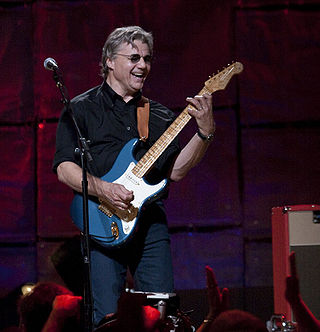
Steven Haworth Miller is an American musician. He is the founder and only remaining original member of the Steve Miller Band, which he founded in 1966, and is the principal songwriter, lead singer, harmonicist, keyboardist, and one of the guitarists. He began his career in blues and blues rock and evolved to a more pop-oriented arena rock genre during the mid-1970s through the early 1980s, releasing popular singles and albums. Miller was inducted into the Rock and Roll Hall of Fame in 2016.

The Steve Miller Band is an American rock band formed in San Francisco, California in 1966. The band is led by Steve Miller on guitar and lead vocals. The group had a string of mid- to late-1970s hit singles that are staples of classic rock radio, as well as several earlier psychedelic rock albums. Miller left his first band to move to San Francisco and form the Steve Miller Blues Band. Shortly after Harvey Kornspan negotiated the band's contract with Capitol Records in 1967, the band shortened its name to the Steve Miller Band. In February 1968, the band recorded its debut album, Children of the Future. It went on to produce the albums Sailor, Brave New World, Your Saving Grace, Number 5, The Joker, Fly Like an Eagle, and Book of Dreams, among others. The band's album Greatest Hits 1974–78, released in 1978, has sold over 13 million copies. In 2016, Steve Miller was inducted as a solo artist into the Rock and Roll Hall of Fame.
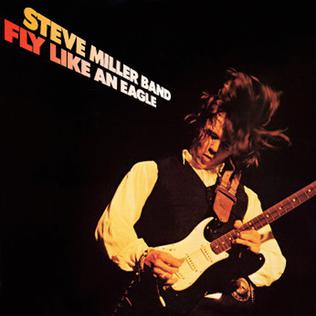
Fly Like an Eagle is the ninth studio album by American rock band Steve Miller Band, released on May 14, 1976, by Capitol Records in the United States, Canada and Japan and Mercury Records in Europe. The album was a commercial success, spawning three hit singles: the title track, "Take the Money and Run" and "Rock'n Me", and eventually received a quadruple platinum certification from the Recording Industry Association of America (RIAA).

John Watson Jr., often known professionally as Johnny "Guitar" Watson, was an American musician. A flamboyant showman and electric guitarist in the style of T-Bone Walker, his recording career spanned 40 years, and encompassed rhythm and blues, funk and soul music.
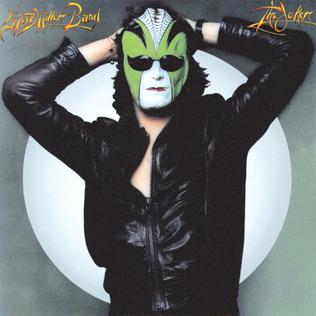
The Joker is a combination live and studio album by Steve Miller Band. The album was recorded at Capitol Studios and released by Capitol Records in October 1973. The album marked a period of significant change for the group as the band abandoned their psychedelic-oriented music for a more melodic, smooth rock/blues sound. It was also their first solid commercial success due to the strong radio-play of the title track. The album reached No. 2 on the Billboard Top LPs & Tape chart and has been certified Platinum in the United States. It reached No. 1 on the Cash Box Albums Charts on January 8, 1974.

The song "Ring of Fire" was made popular by Johnny Cash after it appeared on his 1963 compilation album Ring of Fire: The Best of Johnny Cash. Written by Cash's eventual second wife, June Carter, and songwriter Merle Kilgore, "(Love's) Ring of Fire" was originally recorded by June's sister, Anita Carter, on her 1962 album, Folk Songs Old and New.

Greatest Hits 1974–78 is a compilation album by the Steve Miller Band released in November 1978, presenting the band's hits from 1973–1977.

"I've Been Loving You Too Long" (originally "I've Been Loving You Too Long (To Stop Now)") is a soul music ballad written by Otis Redding and Jerry Butler. Considered by music critics and writers to be one of Redding's finest performances and a soul classic, it is a slow, emotional piece with Redding's pleading vocals backed by producer Steve Cropper's arpeggiated guitar parts and a horn section.
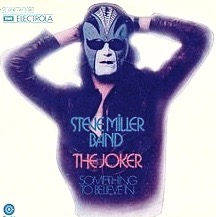
"The Joker" is a song by American rock band Steve Miller Band from their eighth studio album, The Joker (1973). Released as a single in October 1973, the song topped the US Billboard Hot 100 in early 1974 and reached the top 20 in Australia, Canada, and the Netherlands.

Living in the U.S.A. is a budget compilation package with songs by The Steve Miller Band, assembled by CEMA Special Markets and released in 1990. It features material from the band's 1968-1973 albums, and despite being only a budget release, it has been certified "gold" in the United States. An earlier version with this same title was a 1971 double budget reissue of their second album Sailor along with their first Children of the Future.

The Very Best of the Steve Miller Band is a 1991 German compilation by the Steve Miller Band.
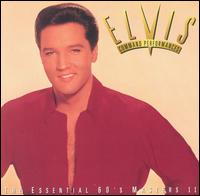
Command Performances: The Essential 60s Masters II is a two-disc compilation of studio master recordings by American singer and musician Elvis Presley during the decade of the 1960s, released in 1995 on RCA Records, catalogue number 66601-2. It also includes a booklet with session details and an essay by Susan M. Doll.

"The Sky Is Crying" is a blues standard written and initially recorded by Elmore James in 1959. Called "one of his most durable compositions", "The Sky Is Crying" became a R&B record chart hit and has been interpreted and recorded by numerous artists.

...And Then I Wrote is the debut studio album by country singer Willie Nelson, recorded during August and September 1962 and released through Liberty Records.

"Driftin' Blues" or "Drifting Blues" is a blues standard, recorded by Johnny Moore's Three Blazers in 1945. The song is a slow blues and features Charles Brown's smooth, soulful vocals and piano. It was one of the biggest blues hits of the 1940s and "helped define the burgeoning postwar West Coast blues style". "Driftin' Blues" has been interpreted and recorded by numerous artists in various styles. The Blues Foundation Hall of Fame and the Rock and Roll Hall of Fame have acknowledged the influence and lasting popularity of the song.

"Goin' Back" is a song written by Gerry Goffin and Carole King in 1966. It describes the loss of innocence that comes with adulthood, along with an attempt, on the part of the singer, to recapture that youthful innocence.
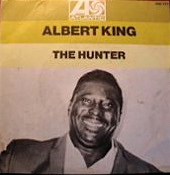
"The Hunter" is a blues song first recorded by Albert King in 1967 for his landmark album Born Under a Bad Sign. It was written by Stax Records' house band, Booker T. and the MGs, and Carl Wells. Along with "Born Under a Bad Sign" and "Crosscut Saw", "The Hunter" is one of King's best-known and most-recorded songs. In 1969, Ike & Tina Turner's version reached the singles charts in the U.S.

Charles Williams Wright is an American singer, instrumentalist and songwriter. He has been a member of various doo wop groups in the late 1950s and early 1960s as well as a solo artist in his own right. He is also the former leader and writer of hits for the group, Watts 103rd Street Rhythm Band.
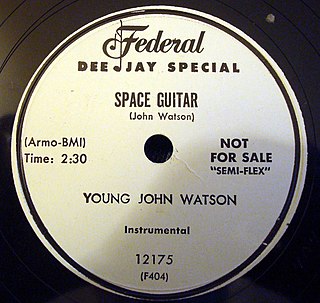
"Space Guitar" is an instrumental composed and recorded by American rhythm and blues artist Johnny "Guitar" Watson. Released as a single in 1954, it was Watson's first recording to showcase his guitar playing. The backing arrangement for the piece is fairly typical for R&B and jump blues at the time. However, Watson's groundbreaking performance on the electric guitar sets it apart.




















